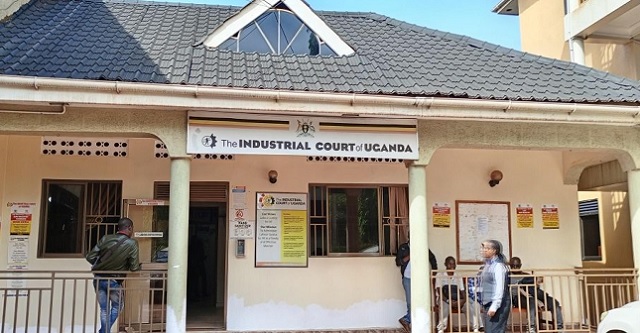
Kampala, Uganda | THE INDEPENDENT | The Industrial Court in Kampala has managed to dispose off more than 2, 400 cases since it’s inception amidst glaring challenges such as under staffing and operating from a congested and small environment.
The Industrial Court is a court of reference whose primary role is to adjudicate and arbitrate labour related disputes referred to by the Labour Disputes (Arbitration and Settlement) Act like cases filed by employees against their employers.
Launched in 2014, the Head of the Industrial Court Lady Justice Linda Lillian Tumusiime says they have since received 5,515 cases and disposed off 2,400 cases. But she notes that they are greatly constrained in terms of space and that there is need to provide the court with adequate premises to enable it to carry out it’s mandate effectively.
The Court is currently housed in Ntinda, Kampala in the same building with the National Youth Council, National Women Council and the National Children’s Authority.
Tumusiime made the remarks on Friday evening on the maiden visit by the members of the Judicial Service Commission, a statutory body charged with appointment and regulation of the conduct for all judicial officers in the country.
At the visit our Reporter was able to see a clear bad working environment of a hotel like structure with limited parking space, squeezed chambers without a quiet environment for the judicial officers to research and make decisions peacefully, offices close to toilets, small registries with congested places of keeping manual records, a small court room and many corridors also which look to be a cause of insecurity to the judicial officers among others.
But according to Justice Tumusiime, the environment in the Court building does not stops them from executing their mandate effectively .
She says they are lobbying to have the premises housed at the National Social Security Fund and Justice Law and Order Sector buildings yet to be constructed but they are not guaranteed of their request. As such, she wants government to give them an assurance.
She adds that they are currently having only two Judges instead of the required five, two registrars also instead of three who are also engaged in administrative duties at Ministry of Gender leaving the court registry with no time to undertake it’s judicial roles.
She thus asked the Judicial Service Commission to fast track the recruitment of judicial officers to coordinate synergies with the Judiciary in areas of strengthening the capacity of judicial officers through training, bench marking to enhance their supervisory role and strengthen partnership with the Court.
On her part, the Chairperson of the Legal and Public Affairs and Research Committee of the Judicial Service Commission Norah Matovu Muwanga who brought apologies from the Chairperson of Judicial Service Commission Justice Benjamin Kabiito and his deputy Justice Faith Mwondha for not being able to visit the premises, commended them to have disposed of several cases with limited human resource.
Matovu who also doubles as the representative of the Uganda Law society to the Commission shared that they equally have the same challenges as Private Practioners where you find one person has to do research for five files and it is most likely to compromise the quality of the work.
Despite this, Matovu has applauded the staff at industrial court for doing an excellent and amazing work and promised to forward their concerns , she will forward them to the Judicial Service Commission top leadership.
Since it’s re operationalization in 2014, the court had evolved from tribunal status to a court of judicature . It’s composition is of a Judge with three other panelists who include a representative of Workers nominated by NOTU of COFTU, a representative of Employers and an independent panelist appointed by the Minister for Gender and Labour and Social Development.
*****
URN
 The Independent Uganda: You get the Truth we Pay the Price
The Independent Uganda: You get the Truth we Pay the Price



